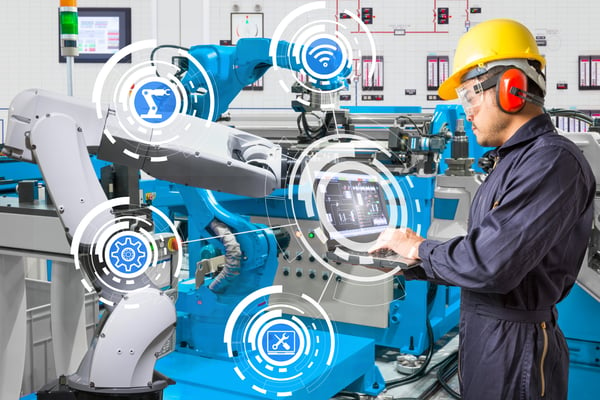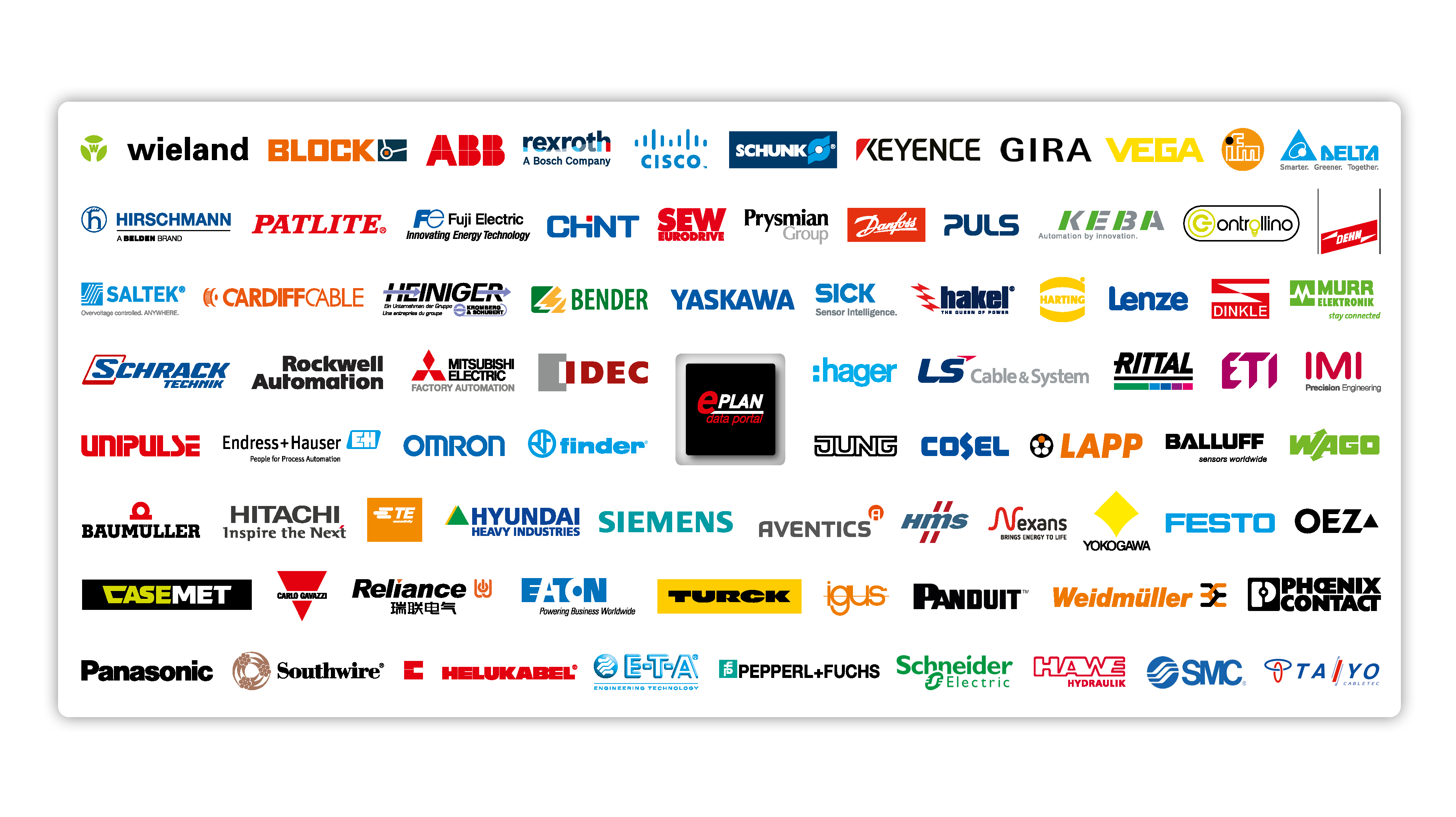Author
 Barry Chatham
Barry is a Business Consultant for EPLAN UK, working closely with the commercial team and a facilitator to the technical team in ensuring that EPLAN are delivering the right value at the right time to our customers.
Having graduated as an Industrial Designer and being deeply immersed in a wide range of disciplines, the learning curve in each of Barry's roles has been vast. This brings with it a wealth of experience, something demonstrable from recent years in CAD software such as Siemens PLM and more recently SolidWorks, where starting in technical and moving into commercial roles, Barry has successfully assisted hundreds of companies through transitional change and added value not only to his customers but heavily focusing on their customers and delivering results in dozens of different industries.
Having been asked the question years ago at an interview, it changed his outlook and discussions on the manufacturing industry, the question was "I make scissors in Sheffield as a consultant, I want you to make me more money"...
This question, and the "so what" methodology enabled Barry to see from a different perspective, something which is proving to be very well received with some of our customers already.
Chatham.b@eplan.co.uk
Barry Chatham auf LinkedIn
Barry Chatham
Barry is a Business Consultant for EPLAN UK, working closely with the commercial team and a facilitator to the technical team in ensuring that EPLAN are delivering the right value at the right time to our customers.
Having graduated as an Industrial Designer and being deeply immersed in a wide range of disciplines, the learning curve in each of Barry's roles has been vast. This brings with it a wealth of experience, something demonstrable from recent years in CAD software such as Siemens PLM and more recently SolidWorks, where starting in technical and moving into commercial roles, Barry has successfully assisted hundreds of companies through transitional change and added value not only to his customers but heavily focusing on their customers and delivering results in dozens of different industries.
Having been asked the question years ago at an interview, it changed his outlook and discussions on the manufacturing industry, the question was "I make scissors in Sheffield as a consultant, I want you to make me more money"...
This question, and the "so what" methodology enabled Barry to see from a different perspective, something which is proving to be very well received with some of our customers already.
Chatham.b@eplan.co.uk
Barry Chatham auf LinkedIn
Designing for the Future
It’s easy for an engineer to think that the prime purpose of a design is to get the project built. That is, of course, a key requirement but it’s only part of the picture. In reality, the design must be right for the lifetime of the equipment and it has to allow for a certain degree of flexibility so as to match the user’s requirements as time goes by. With this in mind, I would like to explain how to design for the future in the true sense of the word.
Accurate Documentation
If you are concerned with your design being viable in the long term, it must, for example, include detailed and accurate documentation so that someone trying to maintain said equipment five or even ten years after it was built knows exactly how it works and what to do if it goes wrong.
 Documentation should be accurate and up to date at all times for machine maintenance.
Documentation should be accurate and up to date at all times for machine maintenance.
With conventional engineering approaches, the production of documentation is a tedious and time-consuming job that’s prone to a variety of mistakes and errors. But if you’re designing with a good CAE software system, the documentation is produced almost at the touch of a button and it’s guaranteed to be accurate. In addition, it’s very straightforward to keep the documentation up to date when design changes are made, and anyone who has ever had to maintain machines on site will know just how big a benefit that is!
Up-to-date Data
The design package will take in accurate and up-to-date component data from a data portal and, by using macros, it will dramatically reduce the design time needed. It will also make sure relevant standards are observed and the quality and accuracy of documentation it produces will offer a tremendous competitive advantage. This is bound to separate cowboys from the professional and reliable companies that guarantee their work and think beyond just “getting the job out of the door”.
3D Design
A future-proof design must also consider the mechanical aspects of maintainability – are components accessible if they need to be repaired or replaced? A 3D CAE design package will help to answer this question. Visualisations in 3D and dimension information relating to production and implementation can be easily and quickly generated directly by the CAE software that includes this functionality.
For instance, Rittal Therm, the software calculation programme for the climate control of enclosures, eliminates laborious calculation of climate control requirements. An easy to use interface leads the user to the appropriate and correctly dimensioned cooling solution. This allows ultimate design for the most efficient system cooling solutions available to the market today. A direct link from the EPLAN Platform to Rittal Therm software is available in order to facilitate even more efficient planning options, together with high-quality heating, cooling and air conditioning component product data by Rittal.
If there are plans to use this type of advanced facility, however, it is worth checking that the CAE package has flexible data export facilities to ensure the information can be provided in a form that is compatible with external systems and that is likely to remain accessible in the future. Obscure proprietary file formats are definitely best avoided!
But what about the components themselves - are they the best and latest of their type? Where are they in their product life cycle? Will they be around for years to come, or just months? Access to a data portal will help here.
Data Portal
A data portal is an online database of component data that is maintained by the component suppliers themselves, who regularly update it to reflect their latest product developments. This means that engineers using data from the portal can always be sure that it’s accurate and up to date. More and more of our Data Portal partners are supplying macros in 3D form (physical representation) therefore making it much easier when dragging and dropping into the 3D environment within EPLAN Pro Panel Professional, enabling a digital twin to be produced that creates an accurate virtual model of the process, product or service.
 The EPLAN Data Portal is a comprehensive online component database.
The EPLAN Data Portal is a comprehensive online component database.
Further, some providers truly stand out with databases containing hundreds of thousands of components from key manufacturers, which are updated every four weeks with regards to new manufacturers and components, and updated information. An added benefit is that the data can be directly imported into the CAE software with no need for conversion or manipulation.
Codes & Standards
Another important issue for designers who like to plan ahead is compliance with the latest industry codes and standards. Unfortunately, many engineers see compliance as just another hoop to jump though because compliance traditionally adds extra work that has to be factored in from the early stages.
The good news is that the best CAE providers offer solutions to these challenges by building into their software guidelines for understanding and using existing standards, and for incorporating them into specific designs.
What’s more, if you happen to work for an ambitious business that wants to stand out from the crowd by developing their own corporate standards, good CAE software can lay the foundations for that with provision for creating and reusing optimised templates based on high quality design and master data. The predefined master data and settings, the pre-set report templates make compliance easier and far less time consuming, as well as ensuring a high degree of standardisation, which is another important element of future-proofing.
The best standards modules help engineers comply not only with product standards, but also with global standards for documentation and production, such as the new IEC 81346, ISO 1219, IEC 61355, and NFPA/JIC standards.
Designing and manufacturing to suit immediate requirements is a more or less straightforward task. But looking to the future and striving to guarantee that a design will still work as intended for in ten or fifteen years’ time is a much taller order. It requires careful thought and access to the right tools to design in long-term reliability and, just as important, maintainability for years to come.
The most helpful of such tools is good CAE and design software. And if it happens to be supported by a team of specialists always on call to help, then producing future-proof designs suddenly turns into clear commercial opportunity rather than a daunting challenge.
Would you like to discover how you can join the electrical design revolution and the benefits to investing in a good CAE package? Why not download the white paper.



Comments